Best public schools in England UK 2024
-
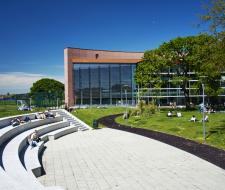 from 15000.00 £ / yearApply with documents
from 15000.00 £ / yearApply with documents -
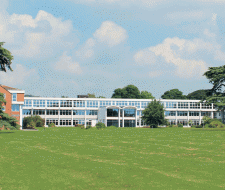 from 8250.00 £ / yearApply with documents
from 8250.00 £ / yearApply with documents -
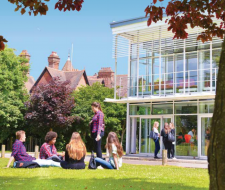 In 2021 - 75% of A Level students achieved A*-B
In 2021 - 75% of A Level students achieved A*-B United KingdomBournemouthCurrently watching: 1from 6000.00 £ / termApply with documents
United KingdomBournemouthCurrently watching: 1from 6000.00 £ / termApply with documents
-
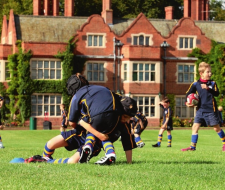 "5th Highest Performing School by A Level results in 2023" – The Telegraph.
"5th Highest Performing School by A Level results in 2023" – The Telegraph. United KingdomYorkCurrently watching: 10from 13850.00 £ / termApply with documents
United KingdomYorkCurrently watching: 10from 13850.00 £ / termApply with documents -
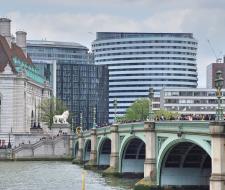 In 2023 100% of students achieved A*– B grades at A-level
In 2023 100% of students achieved A*– B grades at A-level United KingdomLondonCurrently watching: 6from 48037.00 £ / yearApply with documents
United KingdomLondonCurrently watching: 6from 48037.00 £ / yearApply with documents -
 Future graduates of 2024 have already received 5 offers from Oxford and 11 from Cambridge
Future graduates of 2024 have already received 5 offers from Oxford and 11 from Cambridge United KingdomCoventryCurrently watching: 8from 15999.00 £ / termApply with documents
United KingdomCoventryCurrently watching: 8from 15999.00 £ / termApply with documents -
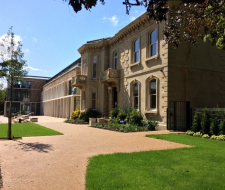 In 2022 - 66% of A Level students achieved A* - A
In 2022 - 66% of A Level students achieved A* - A United KingdomOxfordCurrently watching: 6from 15100.00 £ / termApply with documents
United KingdomOxfordCurrently watching: 6from 15100.00 £ / termApply with documents -
 #1 school in UK and Top-1 worldwide for IB results in 2021
#1 school in UK and Top-1 worldwide for IB results in 2021 United KingdomCardiffCurrently watching: 6from 12650.00 £ / termApply with documents
United KingdomCardiffCurrently watching: 6from 12650.00 £ / termApply with documents -
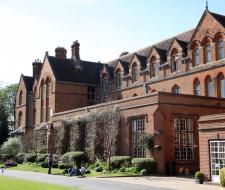 In 2023 - 90% of A Level scores made up A- A*
In 2023 - 90% of A Level scores made up A- A* United KingdomOxfordCurrently watching: 6from 2250.00 £ / 2 weeksApply with documents
United KingdomOxfordCurrently watching: 6from 2250.00 £ / 2 weeksApply with documents -
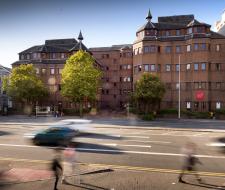 Top school in the UK at A Level during the past eleven years
Top school in the UK at A Level during the past eleven years United KingdomCardiffCurrently watching: 8from 46400.00 £ / yearApply with documents
United KingdomCardiffCurrently watching: 8from 46400.00 £ / yearApply with documents -
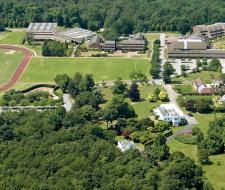 In 2023 an average IB score made up 35
In 2023 an average IB score made up 35 United Kingdomnear LondonCurrently watching: 8from 46880.00 £ / yearApply with documents
United Kingdomnear LondonCurrently watching: 8from 46880.00 £ / yearApply with documents
Alternative destinations
Education information
The education received in the UK has been considered exemplary for many years, both from an academic point of view and from an educational one. This is not surprising, because the British system and schools in England have been formed over the years, relying on the best traditions of classical education. Today the schools in the UK harmoniously combine the valuable experience of the past years, modern technologies and new educational methods that make it possible to move with the times.
Secondary schools in the UK pay much more attention to supporting pupils and creating a comfortable atmosphere. The educational program of English schools is designed to bring up in schoolchildren and adolescents a personality that will be comprehensively developed, and also has all the qualities that are necessary for adult life.
How the studying process is organized in schools in the UK?
British educational system is divided into several stages:
- KS1 and KS2 – primary schools in the UK;
- KS3 – middle classes;
- Sixth Form – high school.
Independent institutions include auxiliary stages:
- Preparatory School is a special educational program for schoolchildren aged 8-13 years, referred to secondary education in England.
- Common Entrance Examination is a program for preparing for examination tests, attended upon reaching the 13th anniversary.
The school curriculum of secondary education in the UK consists of approximately the same disciplines, includes 10 standard subjects, including mathematics, English and foreign languages. At each stage of studying, the program includes additional disciplines from different fields of science (humanities, natural sciences and computer subjects).
Elementary schools in the UK
The public schools in the UK have the right to accept children from 4 years old. Usually, children study at this stage of education until they are 11 years old. Future students need to pass the entrance exam. For the youngest students, an oral survey and a conversation with parents are provided.
Also, a trial lesson is provided for children, it is conducted by a professional teacher from the educational council.
Children 7-8 years old need to pass full-fledged examination tests in standard subjects: mathematics and English. Each institution sets its own standards, more details need to be specified in a particular school in the year of application.
Upon reaching the age of 8, a student has the right to live independently on campus. During this period, the child moves from a preparatory school to a "pre-preparatory" one. In addition, at this age, you can go to another school. For example, it is possible to change a public institution to a private one, with an improved educational program and a high ranking.
Upon reaching the age of 10, a student has the right to transfer to a higher educational institution. Parents will already know exactly which disciplines the child perceives well and which disciplines he is interested in. This will help you choose a suitable educational institution with a convenient and balanced studying program. Professional consultants with many years of experience will help you choose a good school, which will subsequently help you pass a high-quality secondary education program in England, choose a good high school and higher education institution. In the UK, all levels of the educational system are closely connected.
Secondary schools in the UK for foreign students
After 5-6 years of studying in a public school in the UK, children begin a secondary education program in England. Every year, students need to pass exams to check the level of their knowledge – Standard Assessment Tasks. Their development and control is carried out by the Ministry of Education of the country, the same tests are provided for all schoolchildren.
At the end of secondary education in England, the students must pass a mandatory exam – General Certificate of Secondary Education (GCSE). It helps to check the overall academic performance and preparation of students in all major disciplines of secondary education in England. The government of the country is allowed to take the exam in the chosen elective. The test consists of several parts: theoretical, practical and includes coursework.
There are 2 types of exams:
- GCSE (External examination) is relevant in England.
- IGCSE (International GCSE) – valid in all countries of the world.
Students of most free institutions take GCSE in 4 main subjects: mathematics, physical education, English and natural science. In many institutions, the curriculum includes other important disciplines: computer science, art studies, but you do not need to take exams in these subjects.
According to the test results, a certificate of incomplete secondary education in the UK is issued.
Enrolment process in the public schools in the UK
Parents who understand all the benefits of a child studying at school in the UK, as a rule, immediately ask themselves how to do and what is necessary for enrolment. The answer is simple – a foreign student can become a student of one of the British private schools if he meets several criteria. First of all, admission to an English school will require a student to have preliminary language (and sometimes academic) education.
For admission, the foreign students must also successfully pass certification exams - usually mathematics and English, but some schools in England add natural sciences to this list. Usually, applicants are tested a few months before the start of the academic year.
In addition, all students undergo a personal interview with representatives of the school's admissions committee. Also, a future student of a British school needs to prepare, translate into English and send the following list of documents to a potential educational institution:
- A report card with grades reflecting the student's academic performance over the last 2-3 years of high school;
- Certificate attesting to the level of knowledge of the English language (IELTS or TOEFL);
- Letters of recommendation with student characteristics from teachers of mathematics and English;
- Motivation letter or essay on behalf of the applicant.
This is the minimum list of necessary papers, depending on the conditions of a particular school in the UK, it can be expanded or changed. Usually, schools in the UK begin accepting applications from international students in February-March, and the review phase begins in May-June. After that, the student receives an answer – an invitation to school, or a notification about the inclusion of a student in the reserve list. In order to increase the chances, the international students send applications not to one educational institution, but to several at once.
Tuition fee in primary schools in the UK for foreign students
The price of studying at a British school will largely depend specifically on the educational institution: a boarding school or a day school, location in a large city or suburb, the total number of students and many other factors. On average, for one year of study at a British school, a foreign student will need about 20,000-25,000 pounds. The cost of a school in England may not be the smallest, but the money and time invested will definitely pay off in the future, and the child will be grateful to you for the opportunity to have a really high-quality education and get an unforgettable life experience.



